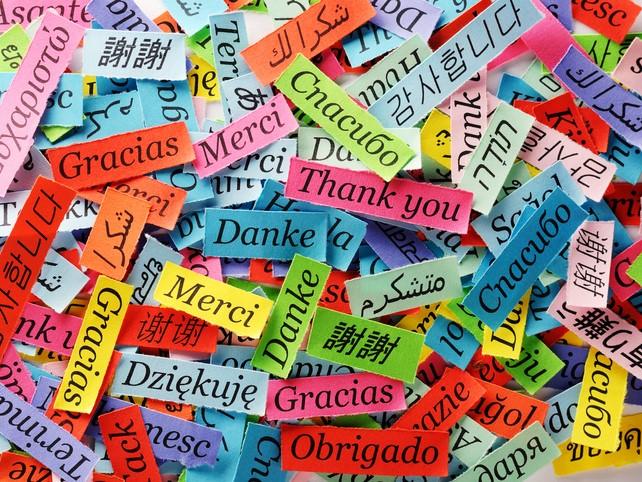
Hidden stories in Indonesian names: you do not have a surname?

Indonesia has an intriguing naming system. Indonesian students can have one, two, three or four words in their names, but none have surnames. The last word in an Indonesian name is not necessarily the surname. Neither does an Indonesian passport specify one’s first, middle and last name.
Indonesian students are frequently puzzled when they must fill in the application and enrolment forms with their names in the first-and-last-name format. University staff are also puzzled when they try to recognise Indonesian students’ family connections (such as father and son or siblings) in the student profiles through their non-existent surnames.
It is natural for Indonesians not to have surnames
Indonesia has the world’s fourth-largest population, made up of more than 1,300 ethnic groups. Each ethnic group has its own naming customs. Joko Widodo, the president of Indonesia, is Javanese. His birth name contains only one name, “Jokowi”, because it is a Javanese tradition to use only one name. When Jokowi was 12, his parents changed his name to “Joko Widodo” to pray for his health. Widodo means “healthy” in Javanese. Jokowi’s father is Widjiatno Notomiharjo, which implies that Jokowi did not inherit a “family name” from his father. The three children of Jokowi are Gibran Rakabuming Raka, Kahiyang Ayu and Kaesang Pangarep. They do not share a family name.
- Resource collection: What’s in a name? The importance of getting students’ names right
- Pronouncing students’ names correctly: the whys and hows
- Breaking language barriers: supporting non-native English-speaking students
Hidden ethnic information in Indonesian names
There are distinct traces in Indonesian-Chinese names. Suharto, the second president of Indonesia, is also Javanese and has only one name. During his reign, in the 1960s, the Indonesian-Chinese were under tremendous pressure to prove their Indonesian identity. Most of them were forced to drop or alter their Chinese surnames.
Some Indonesian-Chinese created Indonesianised “surnames” to hide their Chinese origin. I know an Indonesian student whose last word in her name is “Tjung”. In the time of Suharto’s New Order in the 1960s, her father added a “T” to his Chinese surname “Jung” to make it sound Indonesian.
Instead of playing hide-and-seek with their Chinese surnames, some Indonesian-Chinese added an Indonesian name next to their Chinese surname. Take “Nicholas Wong Susanto”, for example. The last word, “Susanto”, is a typical Indonesian name. “Wong” refers to the Chinese surname “Wang” in Hakka or Cantonese dialect. “Wong” is kept in the name to hint at Nicholas’ ethnic origin, but it has lost its original function as a surname.
How an Indonesian-Chinese spells his Chinese “surname” suggests his family roots in China. For example, “Ang” and “Liem” are Indonesianised Chinese surnames. In Hokkien or Chaozhou dialect, the Chinese surname “Hong” becomes “Ang”, and the Chinese surname “Lin” becomes “Liem”. These names suggest that the ancestors of these families are from Fujian or Guangdong province in southern China. Indonesian students with such surnames often still have relatives living in these areas. I find it very interesting that these students may be able to speak the local Chinese dialects, usually not Mandarin Chinese, which they often use at home in Indonesia to communicate with older family members.
In 2000, Abdurrahman Wahid, the fourth president of Indonesia, lifted the ban on communism and Chinese culture. Many Indonesian-Chinese families have plucked up the courage to revive their original Chinese surnames. If you see an Indonesian student’s name ending in a Chinese surname, there is a large chance that the student was born after 2000.
Respecting the uniqueness of Indonesian names
As an institution that welcomes Indonesian students every year, the Chinese University of Hong Kong, Shenzhen has improved the 2023/24 online application system by making surname optional under “personal information”. This allows Indonesian applicants to fill in their names as shown on their passports without struggling to define non-existent surnames.
How to address an Indonesian student
Always ask Indonesian students how to address them. If a student has two words in her name, for example, “Nina Wiguna”, addressing her by the first word, “Nina”, is a good guess. If there are three words, such as “Jason Anthonio Utomo”, addressing him by the first word is not always the correct guess. He may want to be called “Anthonio”.
If you want to address an Indonesian student’s parents, since they do not have surnames, it is polite to attach Mr or Mrs to the first word of the parents’ names, for example, Mrs April or Mr Edward.
Indonesians like going by short nicknames. For example, my Indonesian friend Soerachmad likes being called “Rachmad”. When Indonesian friends call me, they like shortening my first name, “Rosemary”, to “Rose” in Indonesian fashion.
A name reflects a heritage a person inherits from his family and culture. Understanding a name is the first step to understanding a person. I am curious to see if Indonesia, as a rapidly rising economy, will adopt the global norm in naming, and if Indonesians will have a surname in the future. Whether this happens or not, we should respect their chosen naming system and traditions.
Rosemary Bai is marketing coordinator for international undergraduate admissions at the Chinese University of Hong Kong, Shenzhen.
If you found this interesting and want advice and insight from academics and university staff delivered direct to your inbox each week, sign up for the THE Campus newsletter.


